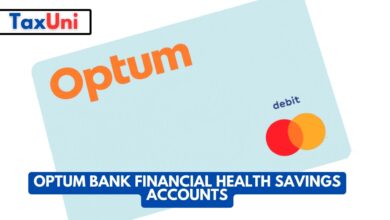How Do Business Loans Work?
Business loans are a form of commercial financing that many businesses need. They are available from banks, NBFCs, and other lenders. It’s important to shop around and compare rates, terms, and fees.

Business loans are a type of commercial financing that qualified businesses can get from traditional banks, online lenders, and credit unions to cover costs like equipment purchases, working capital needs, or expansion plans. Small business loans account for nearly half of all private business revenue in the US and create two out of three new jobs. Knowing how they work can help entrepreneurs secure the funds they need to start, grow, or maintain their companies.
Eligibility
Eligibility for most business loans depends on the company’s credit score and history. Some lenders require a minimum personal credit score of 680 for SBA or traditional bank loans, while others may only require that you sign on as a personal guarantor if your business has a low score or no credit history at all. The type of loan you’re applying for can also impact your eligibility and what kind of terms are available. For example, if you’re looking for a short-term loan, a merchant cash advance can provide fast funding but comes with higher factor rates than a traditional business loan.

Business Loans for Bad Credit
If your business has poor credit, you may find it challenging to secure financing. Many lenders use a business credit score to assess a company’s creditworthiness, considering factors like payment history and outstanding debts. Business credit scores are reported to business credit bureaus by companies such as banks and vendors that extend credit. The better your business credit, the more favorable your chances of securing a loan and obtaining competitive interest rates.
However, many online lenders have a more flexible definition of bad credit and cater to businesses with less-than-perfect scores. These lenders may offer unsecured business loans or secured ones backed by physical assets like equipment or receivables, as well as less-involved application and due diligence processes.
In addition to assessing the overall financial health of your business, it’s essential to understand how much you can afford to repay monthly. This will help you avoid going over your limit and keep your lender happy, reducing your chance of default.

Business Loans for Startups
Business loans for startups are available through online lenders, microlenders, and local banks. These lenders may require additional financial records to support the application, including bank statements, accounts receivable, and unpaid invoices. Depending on the lender, these records may be required to span at least two years. In addition, startup borrowers can prepare to supply personal tax returns for all owners and registered agents.
Loan amounts, repayment terms, and interest rates for startup business loans are typically lower than those of more established businesses, but they do come with higher risk. Because they don’t have a business history, startups are often expected to provide strong financials, a solid business plan, and substantial collateral or equity stake in the company.
In some cases, a credit card from the business owner’s personal account or a home equity line of credit can be used as a form of startup financing. However, this strategy comes with commingling personal and business assets that can create bookkeeping, tax, and legal problems.
Another option is small business grants. These funding sources are awarded based on various criteria, including the industry, business location, and experience level. Grants aren’t an alternative to a business loan, but they can be used in conjunction with other forms of financing to help a startup meet its goals.





